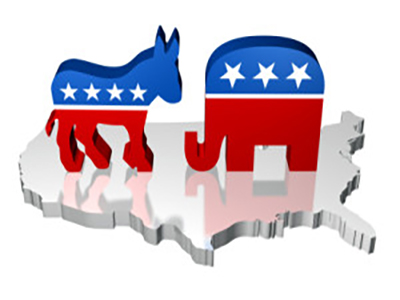
One of the stories featured on today’s (11/3/13) TIME.com website is titled: Why So Little Candy Variety? Blame the Chocolate Oligopoly. A fairly normal reaction to such a headline is some degree of outrage that consumers, the so-called ‘little guys’, also known as the 99%, are, once again, being ‘screwed’ by rich, unscrupulous businessmen, also known as the 1% in the class-warfare rhetoric of President Obama. What I find surprising is the lack of outrage, indeed the widespread public acceptance, of the lack of political choice engineered specifically by the political oligopoly consisting of the Democratic and Republican parties.
These two major political parties have conspired at both the state and national levels to restrict competition not only for themselves but also between themselves. Ballot access laws that require a candidate who is not a registered Democrat or Republican to demonstrate an arbitrarily-set level of public support stifle political competition, as intended, by creating high barriers to entry. Instead of using her valuable time and money convincing voters that she is a highly competent candidate whose positions on issues of relevance are compatible with their own, the would-be politician must spend that time/money to convince some elections board bureaucrats (staffed by Democrats and Republicans) that a large number of voters already support her. Of course, the actual election results convey this information better than any rigged ballot access rules do. But unrestricted ballot access permits the possibility that the election results will convey information that the Democratic and Republican parties won’t appreciate.
The grotesquely-shaped geographic territories that we call electoral districts for the U.S. House of Representatives have been carefully (residence-by-residence) drawn to insulate the incumbent House member (and his/her party) from effective competition by the other party. Within the anti-trust community in the U.S., this is known as geographic division of the market. In political reality it is geographic/demographic division of the market. Private firms that engage in such a practice are subject to the full force of America’s principal Antitrust laws: the Sherman Act and the Clayton Act. Why don’t America’s antitrust laws, designed to protect consumers from monopolies and cartels, apply to the most egregious case of all – our own elected officials? Where is the outrage? More importantly, where, in our country of laws, not men, is enforcement of our own laws?
